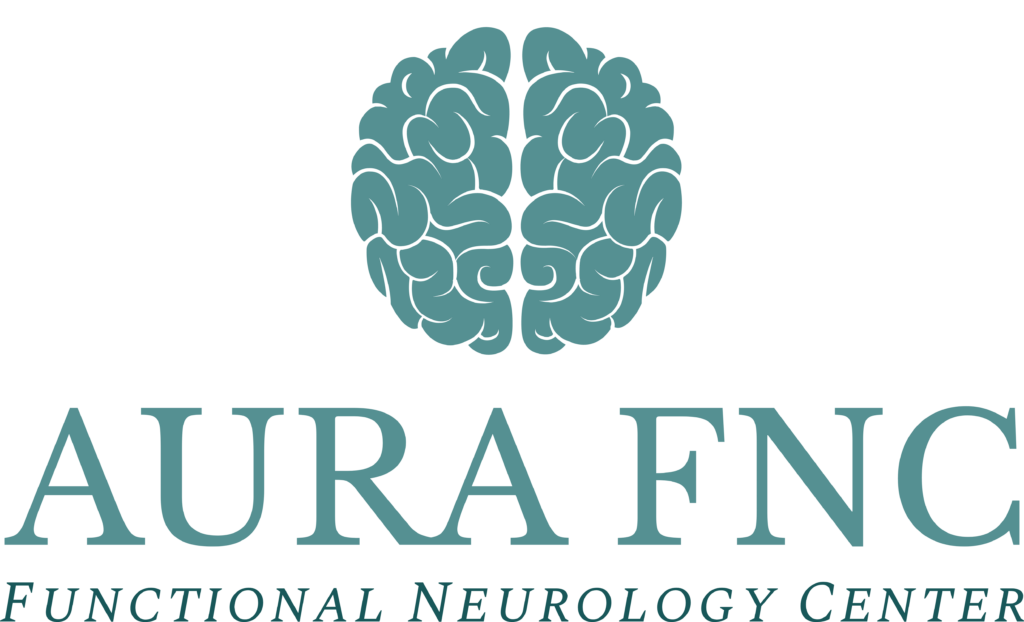What is a TBI?
Understanding a traumatic brain injury (TBI) and which type of TBI applies to you as a unique individual can help you find the right treatment plan. Dr. Diana Tyler our head Functional Neurologist from Aura Functional Neurology Center (Aura FNC) educates on the symptoms, treatments, causes, types, questions, and answers that surround traumatic brain injuries to offer a better understanding of these conditions and how we go about our treatment programs for TBI at Aura FNC.

Dr. Diana Tyler DC, DACNB
Founder of Aura Functional Neurology Center. Board Certified Chiropractic Neurologist with experience treating TBI cases at the Aura FNC office located in Cumming, Georgia right outside of the Atlanta area. Graduate of Palmer College of Chiropractic and Diplomate of the American Chiropractic Neurology Board.
Traumatic Brain Injury (TBI) encompasses a spectrum of injuries that result from a sudden and violent blow or jolt to the head, disrupting normal brain function. It’s a complex condition with varying degrees of severity, and its impact can extend far beyond the initial injury, influencing cognitive, emotional, and physical well-being.
TBIs are a group of injuries that can range from mild concussions to severe cases with long-term consequences. The effects of TBI depend on factors like the force of the impact, the specific area of the brain affected, and the individual’s overall health. Understanding the diverse nature of TBIs is crucial in tailoring interventions and support for those affected by this intricate neurological condition.
TBI poses a multifaceted challenge in cognitive, emotional, and physical domains. The aftermath of a TBI can lead to disruptions in daily life, impacting everything from work and relationships to personal independence.
The nature of TBI symptoms varies widely, creating situations that demand personalized approaches to care and rehabilitation. Recent studies from the National Library of Medicine show that for people under the age of 40, TBI is the main reason for someone to become disabled.
Understanding the intricacies of TBI is crucial for healthcare professionals and caregivers as they provide support to those affected by this diverse neurological condition.

TBI Symptoms
TBI symptoms commonly present themselves across a spectrum. As a functional neurologist, Dr. Diana Tyler pays attention to the unique symptoms that may emerge post-TBI for each individual. It is essential to appreciate the diversity of these symptoms, as they may include cognitive challenges, emotional disturbances, and physical impairments and point to the area of the cortex and brainstem functionally involved.
Diversity of TBI Symptoms
It is important to recognize that Traumatic Brain Injury (TBI) encompasses a spectrum of symptoms and manifestations resulting from external forces affecting the brain. TBI can arise from various incidents, such as concussions, falls, or accidents, leading to disruptions in neural function.
The intricate interplay of neurochemical and structural changes within the brain following a traumatic event can give rise to a diverse array of symptoms. Understanding these symptoms can help tailor effective interventions aimed at restoring neural function and promoting optimal recovery. Here are some common symptoms associated with TBI:
Structural Brain Changes:
- Hemorrhage
- Contusions
- Diffuse Axonal Injury (DAI)
- Hematoma
- Skull fractures
Functional Brain Changes:
- Cognitive impairment
- Memory problems
- Attention and concentration issues
- Executive dysfunction
- Emotional and behavioral change
Autonomic Nervous System Dysfunction:
- Dysautonomia
- Blood pressure fluctuations
- Heart rate irregularities
- Temperature dysregulation
- Gastrointestinal issues
Sensory and Motor Deficits:
- Vision problems
- Hearing difficulties
- Loss of coordination
- Muscle weakness or paralysis
- Tremors or involuntary movements
Psychological and Emotional Challenges:
- Anxiety
- Depression
- Mood swings
- Sleep disturbances
- Post-Traumatic Stress Disorder (PTSD) symptoms
TBI Rehabilitation Programs
Dr. Diana Tyler offers TBI treatment in the form of a 5-day, 10-day, or 15-day brain rehabilitation program at the Aura Functional Neurology Center office in Cumming, Georgia. These rehabilitation programs are customized to patients based on their symptoms and unique needs. Many of our patients who come for TBI treatment at Aura FNC will travel from other cities in Georgia, fly in from other states around the U.S.A., and some will even travel internationally for our TBI rehabilitation programs.
Dr. Diana Tyler treats TBI cases from a functional and neurological perspective using neuroplasticity and brain training to positively influence the complex interactions between genetics, environmental factors, and changes in brain chemistry that surround your TBI. She focuses on strengthening the area of the brain dysfunction that is contributing to your TBI symptoms while also addressing the contributing structural and metabolic factors.
TBI treatment at Aura FNC involves a combination of lifestyle and dietary modifications, nutritional support, neurological rehabilitation, and treatment of the cervical spine. Our approach is based on Chiropractic Functional Neurology and the latest research in clinical neuroscience.
Aura FNC, a private practice with limited capacity, accepts a restricted number of patients annually for our neurodevelopmental rehabilitation programs. This allows for personalized 1:1 sessions with Dr. Diana Tyler, offering 15, 30, or 45 hours of individual treatment across 1, 2, or 3 weeks in a private office setting.
TBI Causes
Traumatic Brain Injury (TBI) is a complex neurological condition stemming from a variety of causes. TBIs can result from events such as accidents, falls, sports injuries, or military-related incidents. The severity of a TBI depends on factors like the force of impact and the location on the head.
In some cases, a TBI may involve direct damage to the brain tissue, while in others, the injury may result from acceleration-deceleration forces causing the brain to move within the skull. These mechanisms can lead to structural changes in the brain, impacting its normal function.
Structural Brain Changes
Structural alterations in the brain are common outcomes of traumatic brain injuries. These changes may manifest as:
- Hemorrhage:
Bleeding within the brain, potentially causing increased pressure and damage to surrounding tissue. - Contusions:
Bruising of the brain tissue, often occuring at the site of impact. - Diffuse Axonal Injury (DAI):
Disruption of nerve fibers throughout the brain, affecting communication between different brain regions. - Hematoma:
Collection of blood outside the blood vessels, further contributing to pressure and potential damage. - Skull Fractures:
Breaks in the skull bone, which may pose additional risks to the brain.
Functional Brain Changes
Functional alterations in the brain following a TBI are crucial to understanding the ongoing challenges individuals may face:
- Cognitive Impairment:
Changes in cognitive function, including memory, attention, and executive abilities. - Memory Problems:
Difficulties with forming and recalling memories. - Concentration Issues:
Challenges in focusing on tasks or maintaining attention. - Executive Dysfunction:
Impaired abilities in planning, organizing, and decision-making. - Emotional and Behavioral Changes:
Shifts in mood, increased irritability, or altered emotional responses can result from the functional impact of a TBI.
Addressing the root causes of TBI is essential in Dr. Diana Tyler’s approach. Our methodology at Aura FNC is focused on understanding the intricate expressions of the brain’s response to trauma. Using treatment plans and modalities based on the latest research in clinical neuroscience, we will make sure your program is tailored to your cause.
Following a TBI, people can have many different symptoms, each person experiencing a unique combination based on what caused their TBI. This understanding is vital for both medical professionals and those impacted by TBIs, so that we can offer a personalized and effective approach to rehabilitation and recovery.
TBI Triggers
Navigating life after a Traumatic Brain Injury (TBI) involves an awareness of triggers that can exacerbate symptoms or lead to challenges in daily functioning. Identifying these triggers is crucial for individuals, caregivers, and healthcare professionals involved in the care and management of TBI survivors. In this section, we’ll explore common triggers associated with TBIs and offer insights into how recognizing and addressing these triggers can play a pivotal role in promoting a supportive and conducive environment for healing.
Common TBI Triggers:
- Overstimulation:
Exposure to excessive sensory stimuli, such as loud noises or bright lights, can trigger discomfort and worsen TBI symptoms. - Physical Exertion:
Engaging in intense physical activities or overexertion may lead to fatigue and exacerbate TBI-related challenges. - Stress and Emotional Distress:
Emotional stressors can significantly impact individuals with TBI, affecting cognitive function and overall well-being. - Lack of Sleep:
Disruptions in sleep patterns or insufficient sleep can contribute to increased TBI symptoms and difficulties in cognitive functioning. - Environmental Changes:
Sudden shifts in the environment, such as changes in weather or exposure to allergens, can be potential triggers for TBI symptoms. - Certain Foods and Beverages:
Sensitivities to specific foods or drinks may trigger headaches, nausea, or other symptoms associated with TBIs. - Dehydration:
Inadequate fluid intake can lead to increased symptom severity and challenges in cognitive functioning for TBI survivors. - Cognitive Overload:
Excessive cognitive demands, such as multitasking or information overload, can overwhelm the cognitive capacity of individuals with TBIs. - Post-Traumatic Stress:
TBI survivors may be susceptible to triggers associated with post-traumatic stress, impacting mental and emotional well-being. - Hormonal Changes:
Fluctuations in hormone levels, such as those during menstruation, may influence TBI symptoms and overall functioning.
Types of TBI We Treat
Concussion
Concussion, also known as a "mild Traumatic Brain Injury" (mTBI), often results from a blow or jolt to the head causing temporary disruption in brain function. The immediate aftermath of a concussion may involve symptoms like headaches, dizziness, and temporary confusion, requiring proper evaluation and rest to aid recovery. While concussions are often considered mild, their potential impact on cognitive and neurological functions underscores the importance of proper management and monitoring for optimal recovery.
Anoxic Brain Injury
Anoxic brain injury occurs when the brain is deprived of oxygen, leading to a disruption in normal brain function. This condition can result from various causes, including drowning, suffocation, cardiac arrest, or severe respiratory failure. The term "anoxic" refers to the absence of oxygen, and the consequences of oxygen deprivation can be severe and often irreversible.
PCS
Post-concussive syndrome (PCS) refers to lingering symptoms persisting weeks or months after the initial injury, affecting cognition, mood, and daily functioning. These symptoms might include persistent headaches, memory difficulties, irritability, and sleep disturbances, often necessitating a tailored rehabilitation approach for comprehensive management.
TBI
Traumatic brain injury (TBI) encompasses a range of injuries to the brain caused by external forces, leading to varied cognitive, physical, and emotional challenges. From mild concussions to severe brain trauma, the impact on an individual's life can be profound, requiring personalized care and extensive support for recovery and rehabilitation.
